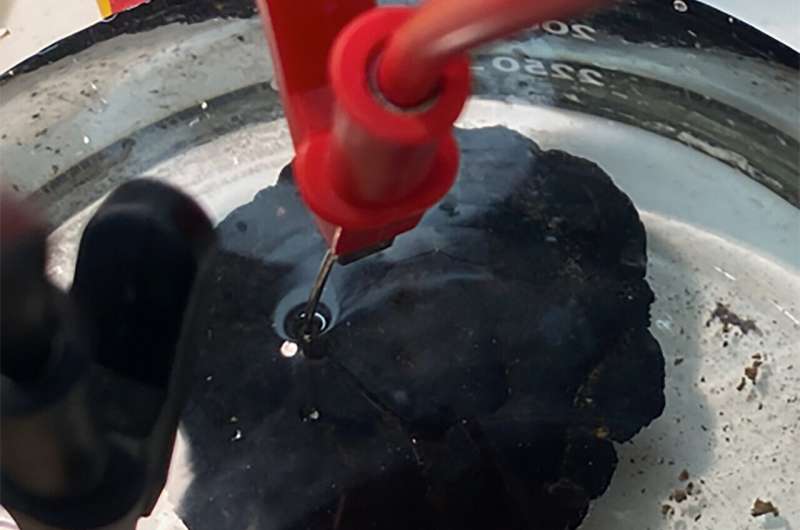Science
Related: About this forumMetallic minerals on the deep-ocean floor split water to generate 'dark oxygen,' new study finds
JULY 22, 2024
by Northwestern University

Polymetallic nodules, collected from the ocean floor, sit in simulated seawater in chemist Franz Geiger's laboratory at Northwestern University. Credit: Franz Geiger/Northwestern University
An international team of researchers, including a Northwestern University chemist, has discovered that metallic minerals on the deep-ocean floor produce oxygen—13,000 feet below the surface.
The surprising discovery challenges long-held assumptions that only photosynthetic organisms, such as plants and algae, generate Earth's oxygen. But the new finding shows there might be another way. It appears oxygen also can be produced at the seafloor—where no light can penetrate—to support the oxygen-breathing (aerobic) sea life living in complete darkness.
The study, "Evidence of dark oxygen production at the abysmal seafloor," was published July 22 in the journal Nature Geoscience.
Andrew Sweetman, of the Scottish Association for Marine Science (SAMS), made the "dark oxygen" discovery while conducting ship-based fieldwork in the Pacific Ocean. Northwestern's Franz Geiger led the electrochemistry experiments, which potentially explain the finding.
"For aerobic life to begin on the planet, there had to be oxygen, and our understanding has been that Earth's oxygen supply began with photosynthetic organisms," said Sweetman, who leads the Seafloor Ecology and Biogeochemistry research group at SAMS. "But we now know that there is oxygen produced in the deep sea, where there is no light. I think we, therefore, need to revisit questions like: Where could aerobic life have begun?"
More:
https://phys.org/news/2024-07-metallic-minerals-deep-ocean-floor.html
Wounded Bear
(61,150 posts)flying_wahini
(8,045 posts)China has whole fleets that do this.
muriel_volestrangler
(102,897 posts)“Because these fields cover such huge areas of our planet it would be crazy to press ahead with deep-sea mining knowing they may be a significant source of oxygen production.”
Prof Sweetman added: “I don't see this study as something that will put an end to mining.
“[But] we need to explore it in greater detail and we need to use this information and the data we gather in future if we are going to go into the deep ocean and mine it in the most environmentally friendly way possible.”
https://www.bbc.co.uk/news/articles/c728ven2v9eo